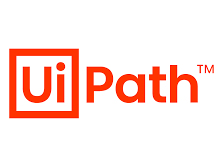What is My SQL
Key Features of MySQL:
- Open Source: MySQL is freely available under the GNU General Public License, allowing users to view, modify, and distribute the source code. This open-source nature has contributed to its widespread adoption and continuous improvement by a vast community of developers.
- Relational Database Management System (RDBMS): MySQL follows the relational database model, organizing data into tables with defined relationships. This structure ensures data integrity and facilitates efficient retrieval and manipulation of information.
- Cross-Platform Compatibility: MySQL is compatible with various operating systems, including Windows, Linux, macOS, and more. This flexibility allows users to deploy MySQL on their preferred platform, promoting seamless integration into diverse environments.
- Scalability: MySQL is designed to handle both small-scale applications and large-scale enterprise solutions. Its scalability enables it to grow alongside the increasing demands of data and user interactions.
- High Performance: MySQL is optimized for speed and efficiency. Its ability to process complex queries swiftly makes it suitable for applications with high transaction volumes, such as e-commerce websites and financial systems.
- Multi-User Support: MySQL supports multiple users accessing the database concurrently. This feature is essential for applications with numerous users or where collaboration is necessary.
- Data Security: MySQL provides robust security features, including user authentication, access control, and encryption. This ensures that sensitive information is protected from unauthorized access or manipulation.
- Data Types and Indexing: MySQL supports a wide range of data types, allowing users to store various types of information. Additionally, it includes indexing capabilities, which enhance data retrieval speed by creating efficient access paths to the stored data.
- Community and Support: With a large and active community of developers and users, MySQL benefits from constant improvement, bug fixes, and the development of new features. Additionally, there is extensive documentation and online resources, making it easy for users to find assistance and solutions to common issues.
Common Use Cases:
- Web Applications: MySQL is frequently employed in conjunction with popular web development technologies, such as PHP and Python, to power dynamic and data-driven websites.
- Content Management Systems (CMS): Many CMS platforms, including WordPress, Drupal, and Joomla, use MySQL as their database backend.
- Business Applications: MySQL is suitable for various business applications, such as customer relationship management (CRM), enterprise resource planning (ERP), and data warehousing.
- Data Warehousing: The scalability and performance of MySQL make it a suitable choice for building data warehouses, where large volumes of data are stored and analyzed.


